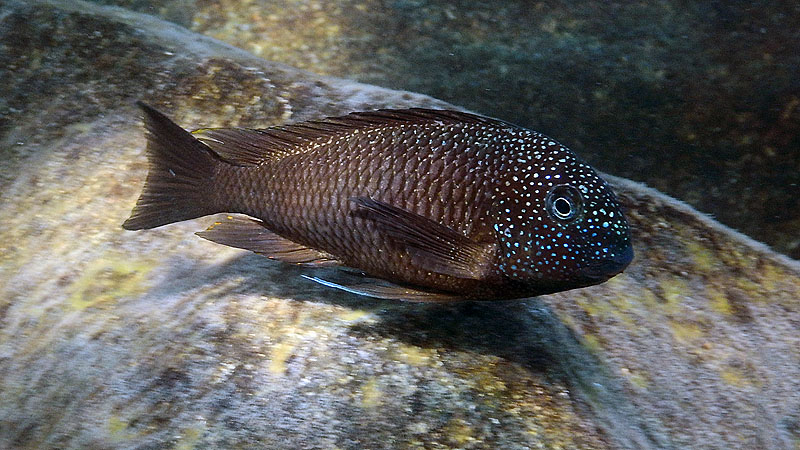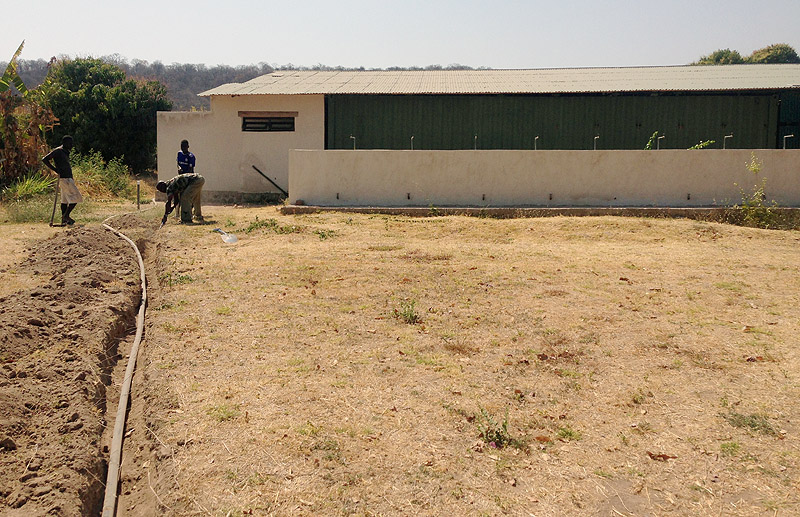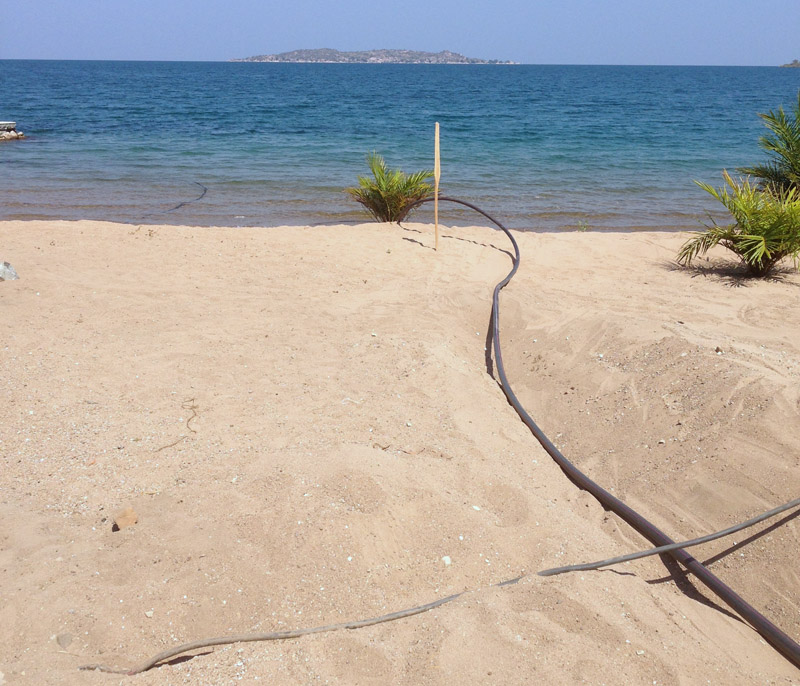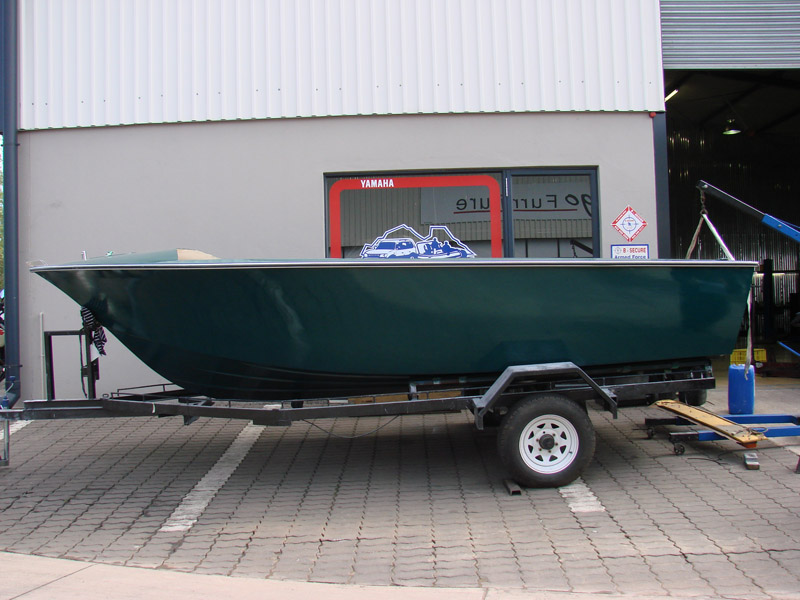Dear Friends, You may have heard through the grapevine that the so-called Tanzania Murago is still around in the lake. A few friends and I visited the site last July and although the population has suffered visibly, the species is still there. I estimate that about 50% of the population has been removed and, interestingly, the fish from adjoining areas did not (yet?) occupy the empty space from where the Tropheus was caught. So snorkelers swimming in one direction didn’t see a single individual while those in the opposite direction started to find them in seemingly normal numbers. We were all relieved. Let’s hope that those aquarists keeping this form breed them in sufficient quantities so that we don’t need to rely on the natural population. | |||||||||||||||

| |||||||||||||||
The breeding station setup at the Lakeshore Lodge in Kipili is progressing. Chris had been waiting for a compound to put on the inside of the vats to seal them, which he has applied in the meantime. Last week he and his staff dug a 500-foot-long trench from the lake to near the vats to hold the water intake line from the solar pump at one end, to a 5000-liter container on the other. | |||||||||||||||

| |||||||||||||||

| |||||||||||||||
Omega One has already contributed to the Fund through the sale of their Frozen Cichlid Formula—Thank you!—and Kelly Randall, the marketing director of Omega Sea, has also sent a box with Super Kelp Flakes to Kipili as food for the breeders. Great! Lake Malawi We have also news from Matt, manager of the Blue Zebra Lodge on the Maleri Islands in Malawi. He anticipates more pressure on the fishing around the islands because of the poor rainy season leaving the lake almost two feet lower compared to last year and thus affecting crop yields. Matt also supplied a list of illegal activities recorded on and around the Maleri Islands and found that they are in better control of the illegal fishing.
| |||||||||||||||
| He credits the improving numbers to three factors: 1. Change in the routine patrol, 2. increased availability of resources, and 3. higher penalties charged to offenders. Matt thinks that the recorded improvements are due to better prevention (several patrols per month) and also to better dialog with the communities. As an example of the latter he mentions that the local (Maganga Village) soccer team, which is sponsored by the lodge, changed their name from “Fisherman Club” to “Blue Zebra Club”.
Nevertheless, Matt remarks, their efforts are not totally persuasive. Every week, he still removes long fishing lines from the no-fishing zone at Nakantenga Island, and six of the ten demarcation floaters he installed last year have gone missing. There is some progress on the guard’s boat that is being fitted in South Africa. The hull has now been prepared to receive the customized diesel engine and Dimitri hopes the boat will be operational before the end of the year. | |||||||||||||||
 | |||||||||||||||
Thank You The Fund recently received a big infusion from the Babes In The Cichlid Hobby; a whopping $4,500!! With the help of many donors who supplied them with numerous cichlids and fish-related goods, they auctioned and auctioned during the Springfield ACA convention this summer. Thank you so much, ladies! A good chunk of the donation went straight to Tanzania to assist Chris and Louise in completing the breeding station. I would also like to thank Mikael and Magnus Karlsson, the discoverers of the Tanzania Murago (among many other fish), who donated the stipend for their article in Cichlid News to the Fund. | |||||||||||||||
|
Thank you ALL for securing the cichlids’ future and for keeping extinction out off our tanks! |
|||||||||||||||
